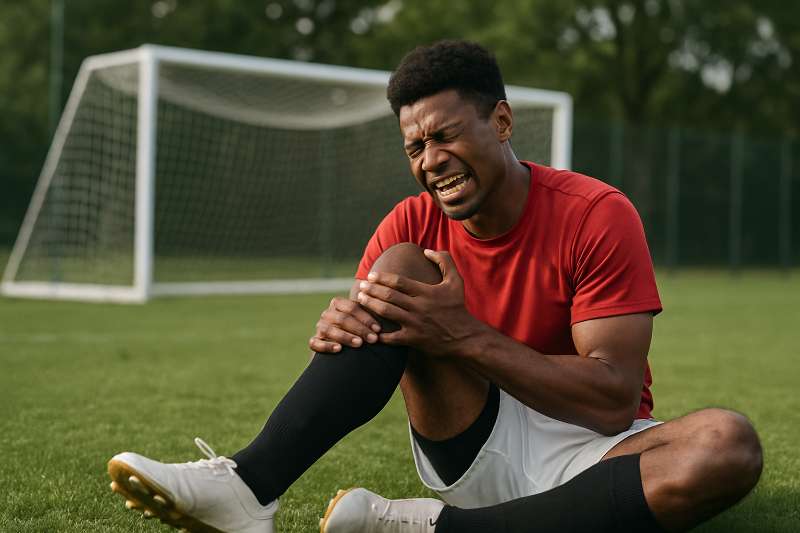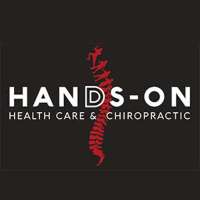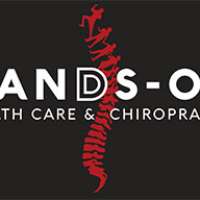Understanding the common types of sports injuries and how to prevent them may save your life the next time you decide to engage in sports activities with your friends, partners, or family.
Sports injuries are an inevitable part of an athlete’s career, whether you’re a professional player or someone who enjoys recreational activities. Engaging in physical sports often comes with the risk of injury, but understanding the types of injuries and how to prevent them can go a long way in ensuring a safer sporting experience. However, even if a sports injury has already occurred, you can go directly to a healthcare clinic like Hands-On Health Care & Chiropractic.
In this article, we’ll explore the most common types of sports injuries, their causes, symptoms, and tips for prevention."
1. Sprains and Strains: The Most Common Sports Injuries
What Are Sprains and Strains?
Sprains and strains are among the most common types of sport injuries in any sport. A sprain occurs when a ligament, the tissue that connects bones, is stretched or torn, while a strain involves damage to muscles or tendons, the tissues that connect muscles to bones.
Some prevention tips that you can do are to always warm-up before any sports activity, Stretch regularly to maintain flexibility., Avoid overexertion by resting between intense workouts.
Common Causes of Sprains and Strains
Sudden twists or falls
Overuse of muscles
Poor flexibility and warm-up routines
Symptoms of Sprains and Strains
Pain or tenderness in the affected area
Swelling or bruising
Limited range of motion
2. Fractures: Broken Bones from Impact or Overuse
What Are Fractures?
Fractures, or broken bones, are serious injuries that occur when bones crack or break. Depending on the severity, fractures can range from simple cracks to complete breaks.
Some prevention tips that you can do are to Wear protective gear like helmets, pads, and braces, Ensure proper technique during exercises or physical activity, and Strengthen bones with proper nutrition, including calcium and Vitamin D.
Common Causes of Fractures
High-impact collisions or falls
Overuse and repetitive stress, such as in running or basketball
Symptoms of Fractures
Intense pain at the site of injury
Inability to move the affected limb
Swelling, bruising, or a deformity in the affected area
3. Tendonitis: Inflammation from Overuse
What Is Tendonitis?
Tendonitis is the inflammation of a tendon, often caused by repetitive movement or overuse. This injury is particularly common among athletes who perform the same motion repeatedly, such as runners, tennis players, or swimmers.
Some prevention tips that you can do are to Take regular breaks from repetitive activities, Focus on proper form during exercises, and Use appropriate footwear to reduce strain on tendons.
Common Causes of Tendonitis
Repetitive motions, such as throwing or jumping
Poor technique or posture during activity
Lack of rest or recovery time
Symptoms of Tendonitis
Pain, swelling, or tenderness along a tendon
Stiffness and limited movement
A slight burning sensation in the affected area
4. Concussions: Head Injuries from Impact
What Are Consussions?
Concussions are a type of brain injury caused by a blow to the head. In sports like football, soccer, and boxing, where contact is more frequent, concussions can occur when an athlete’s head is struck, causing the brain to move rapidly within the skull.
Some prevention tips that you can do are to Always wear appropriate head protection, such as helmets, Follow sport-specific safety protocols to avoid head impacts, and Encourage players to report symptoms immediately if they suspect a concussion.
Common Causes of Concussions
Direct blows to the head or face
Sudden deceleration, such as in car accidents or falls
Symptoms of Concussions
Headache or dizziness
Confusion or memory loss
Sensitivity to light or noise
5. Dislocations: When Bones Slip Out of Place
What Are Dislocations?
A dislocation happens when the bones in a joint are forced out of their normal position. This is most commonly seen in the shoulder, elbow, fingers, and knees during sports activities.
Some prevention tips that you can do are to Engage in strength training to improve joint stability, Avoid aggressive contact or movements that could cause joint displacement, and Practice good flexibility and proper warm-up techniques before activities.
Common Causes of Dislocations
Sudden impact or trauma
High-speed collisions, like in rugby or football
Symptoms of Dislocations
Visible deformity in the joint
Severe pain in the affected area
Difficulty moving the joint
6. Shin Splints: Pain Along the Shins
What Are Shin Splints?
Shin splints are a common injury among runners and athletes who engage in high-impact activities. This condition is characterized by pain along the shin bone, typically caused by overuse or improper footwear.
Some prevention tips that you can do are to Wear supportive, cushioned shoes designed for your sport, Gradually increase the intensity of your activity to avoid overuse, and Consider cross-training to reduce repetitive stress on the shins.
Common Causes of Shin Splints
Overexertion or rapid increases in physical activity
Running on hard surfaces or incorrect footwear
Symptoms of Shin Splints
Pain along the inner part of the lower leg
Swelling or tenderness along the shin
Pain that worsens with activity
7. Lower Back Pain: A Widespread Issue in Athletes
What Is Lower Back Pain?
Lower back pain is a frequent problem for athletes and active individuals. It can occur due to poor posture, muscle strain, or improper lifting techniques.
Some prevention tips that you can do are to Strengthen your core muscles with targeted exercises, Use proper lifting techniques to avoid unnecessary strain, and Stretch regularly, focusing on the back and hip flexors.
Common Causes of Lower Back Pain
Lifting heavy objects improperly
Lack of core strength or flexibility
Poor posture during sports or exercise
Symptoms of Lower Back Pain
Pain or stiffness in the lower back
Muscle spasms or tightness
Limited mobility or flexibility
8. Knee Injuries: From Ligament Tears to Cartilage Damage
What Are Knee Injuries?
The last but not least of common types of sport injures are knee injuries. Knee injuries, including ligament tears (such as ACL or MCL tears) and cartilage damage (like meniscus tears), are common in sports that require jumping, running, or sudden changes in direction.
Some prevention tips that you can do are to Focus on exercises that improve knee strength and stability, Warm-up and cool down before and after physical activity, and Use appropriate footwear and orthotics to reduce knee strain.
Common Causes of Knee Injuries
High-impact activities such as football, basketball, and soccer
Sudden twisting movements or falls
Symptoms of Knee Injuries
Swelling or bruising around the knee
Difficulty moving or bending the knee
Pain or discomfort when bearing weight
Need help recovering from a sports injury? Visit Hands-On Health Care & Chiropractic for expert advice, injury rehabilitation, and personalised care. Our experienced team is here to help you get back to your best and prevent future injuries. Book an appointment today!
Conclusion



































